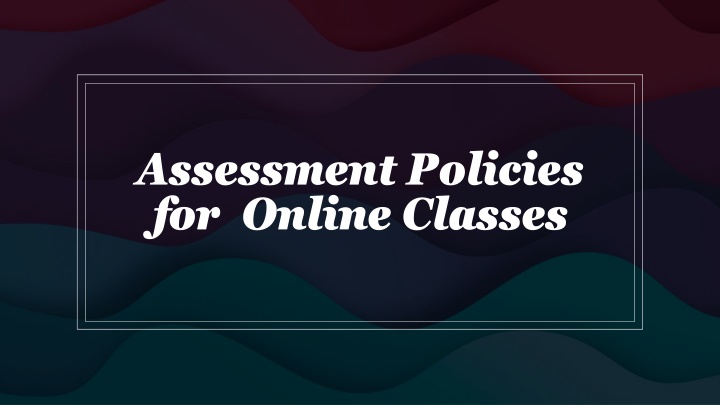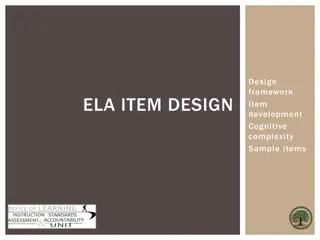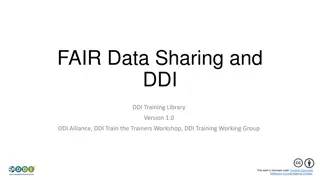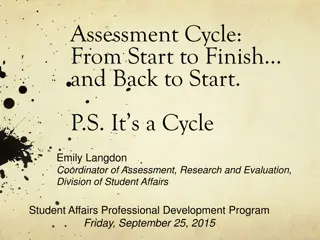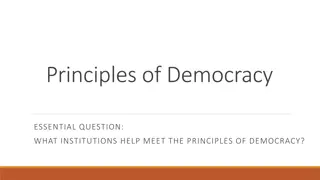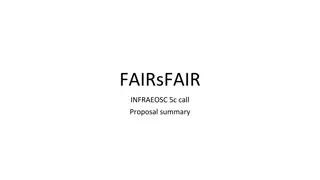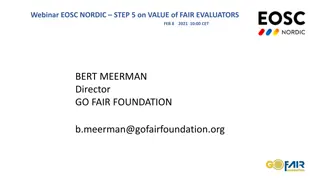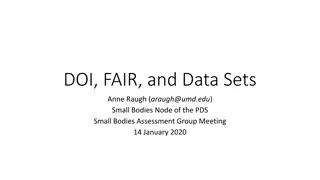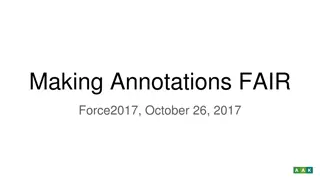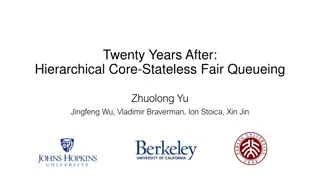Principles of Fair Assessment Policies
Assessment plays a crucial role in supporting learning and judging performance. Fair assessment should align with course objectives, engage students in deep learning, and provide diverse tasks. Timely feedback, ethical conduct, and real-world assessments are essential. Consider changing assessment weighting/types halfway, incorporating alternative assessments, and offering more choice to students to enhance fairness.
Download Presentation

Please find below an Image/Link to download the presentation.
The content on the website is provided AS IS for your information and personal use only. It may not be sold, licensed, or shared on other websites without obtaining consent from the author.If you encounter any issues during the download, it is possible that the publisher has removed the file from their server.
You are allowed to download the files provided on this website for personal or commercial use, subject to the condition that they are used lawfully. All files are the property of their respective owners.
The content on the website is provided AS IS for your information and personal use only. It may not be sold, licensed, or shared on other websites without obtaining consent from the author.
E N D
Presentation Transcript
Assessment Policies for Online Classes
Principles of Fair Assessment Policies Assessment plays a major part in shaping and supporting learning and providing an avenue to judge levels of performance Assessment should be part of the planning process and be aligned to the course objectives and learning modalities of the course. Assessment tasks should provide students with the stimulus to engage in deep and challenging ways that will change their wats of thinking and doing in line with the course objectives
Principles of Fair Assessment Policies Assessment tasks should be diverse and inclusive of the range student learning styles and abilities Assessment should be directed to both formative and summative goals Timely feedback is an essential part of fair assessment practices Assessment methods should be fair, valid, reliable and consistent Assessment practices should promote ethical academic conduct Authentic, real-world practice-based assessments should play a role across a program of study.
Online vs F2F Online assessments are difficult or impossible to proctor Respondus lockdown browser, turn-it-in Can/should I change weighting and/or types of assessments over halfway through the semester? Look carefully at course objectives assessed so far, how much more is REALLY necessary for you to be able to determine a fair grade? Alternative assessments: are you using any, and if so, what are they? Is is feasible to give students more choice in their mode or format of assessment tasks? Can you utilize a portfolio approach?
Suggestions for Open Book Quantitative Exams STEM and other quantitative courses face challenges in creating effective online exams, in part because it's so easy to cheat and because so many questions are computational Ask more conceptual questions (e.g., "what is the next step in this problem?", "state the definition of...", "explain why this hypothesis in the theorem is necessary"). Ask students to identify an error in a proof or computation (this is particularly effective since it can't be googled). If using problems from a textbook, change not only the numbers but also the names (e.g., John to Alice) and the scenario (e.g., pulling a boat in to letting a kite string out). The reason for this is that popular textbooks will probably have many of their problems already solved online somewhere, for example, on Chegg.
Suggestions for Open Book Quantitative Exams Break up long exams into smaller more manageable chunks. Use letters and variables in place of specific numbers. When randomizing the exam, don't just randomize numbers. Also randomize discrete parts of the problem. For instance, one version might have a problem like "maximize the volume of the box given its surface area" whereas another version might have "minimize the surface area of a box given its volume". (The numbers can even be the same for the two versions.) Reduce or eliminate multiple-choice and fill-in questions in favor of show- all-work questions where students scan and upload their work.
Suggestions for Open Book Quantitative Exams Avoid questions that consist of only simple computations. For example, instead of "calculate this integral", present students with some application in which they also have to set up a proper integral. "Write an integral expression that is equal to the probability that..." or "write a triple integral which is equal to the mass of the region" are good alternatives. Online calculators solve many computational problems, and give step by step solutions. Adding more words and applications to a problem makes it more difficult to cheat and also tests the real learning goal: do students know how to apply basic principles? (Ultimately, anyone can use a calculator, but only if you know what you want to calculate.)
Testing in the Remote Teaching world Robert Talbert s suggestions on how have student submit handwritten work in the online environment Student guide for how to convert their handwritten document into a pdf to upload Utilize more frequent lower stakes assessments Use synchronous delivery modes with polling software monitor learning along the way and get to know your students capabilities
